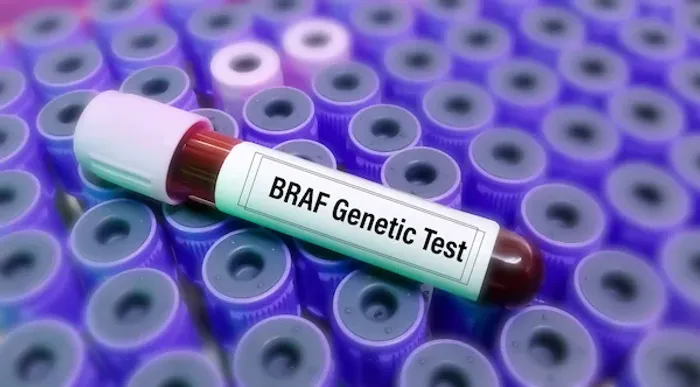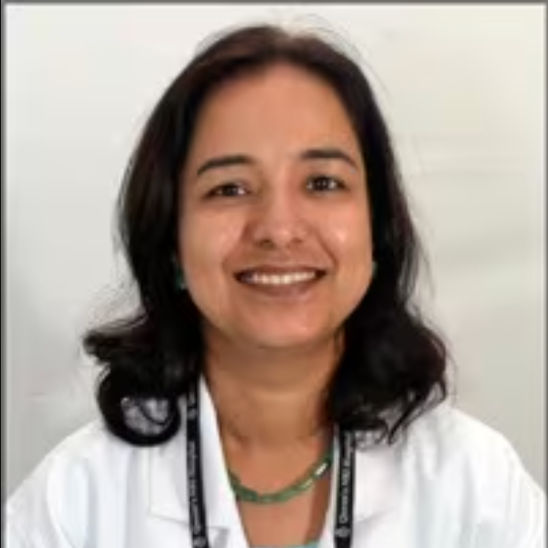BRAF Testing for Melanoma Overview
Learn about BRAF testing for melanoma. Discover how this genetic test identifies a specific mutation to guide targeted therapy and improve treatment outcomes.


Introduction
Melanoma is a serious type of skin cancer that develops when the pigment-producing cells (melanocytes) grow uncontrollably. Early detection and treatment are crucial for better outcomes. One important test that helps guide treatment decisions is BRAF testing.
If you or a loved one has been diagnosed with melanoma, understanding BRAF testing can help you make informed decisions about your care. This article explains what BRAF testing is, why it’s important, and how it can influence treatment options.
What Is BRAF Testing?
BRAF testing is a genetic test that checks for mutations in the BRAF gene in melanoma cells. The BRAF gene helps control cell growth, but when it mutates, it can cause cells to grow and divide uncontrollably, leading to cancer.
About 50% of melanoma cases have a BRAF mutation. Knowing whether your melanoma has this mutation helps doctors determine the best treatment approach.
Consult an Oncologist for Personalised Advice
Why Is BRAF Testing Important?
If your melanoma has a BRAF mutation, targeted therapy drugs can be used to block the abnormal signals that make cancer cells grow. These drugs are often more effective and have fewer side effects than traditional chemotherapy.
Without BRAF testing, doctors might not know whether these targeted treatments will work for you. That’s why this test is a crucial step in personalising your cancer care.
How Is BRAF Testing Done?
BRAF testing is performed on a tissue sample from your melanoma, usually taken during a biopsy or surgery. The sample is sent to a lab, where experts analyse the DNA to check for BRAF mutations.
Results typically take a few days to a couple of weeks, depending on the lab. Your doctor will discuss the findings with you and explain the next steps.
What If My Test Is Positive for a BRAF Mutation?
If your melanoma has a BRAF mutation, your doctor may recommend targeted therapy drugs, such as:
- Dabrafenib (Tafinlar)
- Vemurafenib (Zelboraf)
- Encorafenib (Braftovi)
These medications specifically target the BRAF mutation, slowing or stopping cancer growth. They are usually taken as pills and may be combined with other drugs for better results.
Benefits of Targeted Therapy
The benefits include:
- More precise than chemotherapy
- Fewer side effects (though some patients may experience skin rashes, fatigue, or joint pain)
- Often effective in shrinking tumours
What If My Test Is Negative for a BRAF Mutation?
If your melanoma does not have a BRAF mutation, targeted therapy may not be the best option. Instead, your doctor may recommend:
- Immunotherapy – Drugs that help your immune system fight cancer (e.g., pembrolizumab, nivolumab).
- Chemotherapy or radiation – In some cases, traditional treatments may still be used.
- Clinical trials – New treatments are constantly being tested, and you may qualify for experimental therapies.
Who Should Get BRAF Testing?
BRAF testing is usually recommended for:
- Patients with advanced (metastatic) melanoma
- Those whose melanoma has spread to lymph nodes or other organs
- People considering targeted therapy or immunotherapy
Even if your melanoma is in an early stage, your doctor may still suggest testing to plan future treatment if needed.
Managing Melanoma: Lifestyle and Prevention Tips
While BRAF testing helps guide treatment, taking care of your overall health is equally important. Here are some tips:
1. Protect Your Skin
- Use broad-spectrum sunscreen (SPF 30+) daily.
- Wear protective clothing, hats, and sunglasses in the sun.
- Avoid tanning beds, which increase melanoma risk.
2. Monitor Your Skin
- Check your skin monthly for new or changing moles.
- Follow up with a dermatologist for regular skin exams.
3. Eat a Healthy Diet
- Focus on fruits, vegetables, whole grains, and lean proteins.
- Some studies suggest antioxidant-rich foods (berries, leafy greens) may support cancer prevention.
4. Stay Active
- Regular exercise can boost immunity and improve overall well-being.
5. Seek Emotional Support
- A melanoma diagnosis can be stressful. Consider joining a support group or speaking with a counsellor.
When to See a Doctor?
If you notice any of these warning signs of melanoma, see a dermatologist immediately:
- A new or changing mole (asymmetrical, irregular borders, multiple colours)
- A sore that doesn’t heal
- A mole that itches, bleeds, or grows rapidly
Early detection saves lives, so don’t delay getting checked.
Final Thoughts
Melanoma is a serious condition, but advances in genetic testing and targeted therapies have improved treatment outcomes. BRAF testing helps doctors choose the most effective treatment for your specific cancer, giving you the best chance for recovery.
Consult an Oncologist for Personalised Advice
Consult an Oncologist for Personalised Advice

Dr. Sandeep Muzumder
Radiation Specialist Oncologist
21 Years • MBBS (JIPMER, Pondicherry), MD (AIIMS, New Delhi)
Bhubaneswar
Apollo Hospitals Old Sainik School Road, Bhubaneswar

Dr. Ganesh Chandra Subudhi
Medical Oncologist
16 Years • MBBS, MD- General Medicine. DrNB- Medical Oncology (DNSH, Delhi ). Consultant - Medical Oncology at Apollo Cancer Centre, Bhubaneshwar.
Bhubaneswar
Apollo Hospitals Old Sainik School Road, Bhubaneswar

Dr. Mano Bhadauria
Radiation Specialist Oncologist
25 Years • MBBS, MD
Delhi
Apollo Hospitals Indraprastha, Delhi

Dr. Gopal Kumar
Head, Neck and Thyroid Cancer Surgeon
15 Years • MBBS, MS , FARHNS ( Seoul, South Korea ), FGOLF ( MSKCC, New York )
Delhi
Apollo Hospitals Indraprastha, Delhi
(25+ Patients)

Dr Sunita Samleti
Oncologist
18 Years • M.D. (Pathology)- TN Medical College, Mumbai University, Mumbai, Mar 2005 M.B.B.S. Grant Medical College, Mumbai University, Mumbai, Oct 1999
Chinagadila
Apollo Hospitals Health City Unit, Chinagadila
Consult an Oncologist for Personalised Advice

Dr. Sandeep Muzumder
Radiation Specialist Oncologist
21 Years • MBBS (JIPMER, Pondicherry), MD (AIIMS, New Delhi)
Bhubaneswar
Apollo Hospitals Old Sainik School Road, Bhubaneswar

Dr. Ganesh Chandra Subudhi
Medical Oncologist
16 Years • MBBS, MD- General Medicine. DrNB- Medical Oncology (DNSH, Delhi ). Consultant - Medical Oncology at Apollo Cancer Centre, Bhubaneshwar.
Bhubaneswar
Apollo Hospitals Old Sainik School Road, Bhubaneswar

Dr. Mano Bhadauria
Radiation Specialist Oncologist
25 Years • MBBS, MD
Delhi
Apollo Hospitals Indraprastha, Delhi

Dr. Gopal Kumar
Head, Neck and Thyroid Cancer Surgeon
15 Years • MBBS, MS , FARHNS ( Seoul, South Korea ), FGOLF ( MSKCC, New York )
Delhi
Apollo Hospitals Indraprastha, Delhi
(25+ Patients)

Dr Sunita Samleti
Oncologist
18 Years • M.D. (Pathology)- TN Medical College, Mumbai University, Mumbai, Mar 2005 M.B.B.S. Grant Medical College, Mumbai University, Mumbai, Oct 1999
Chinagadila
Apollo Hospitals Health City Unit, Chinagadila